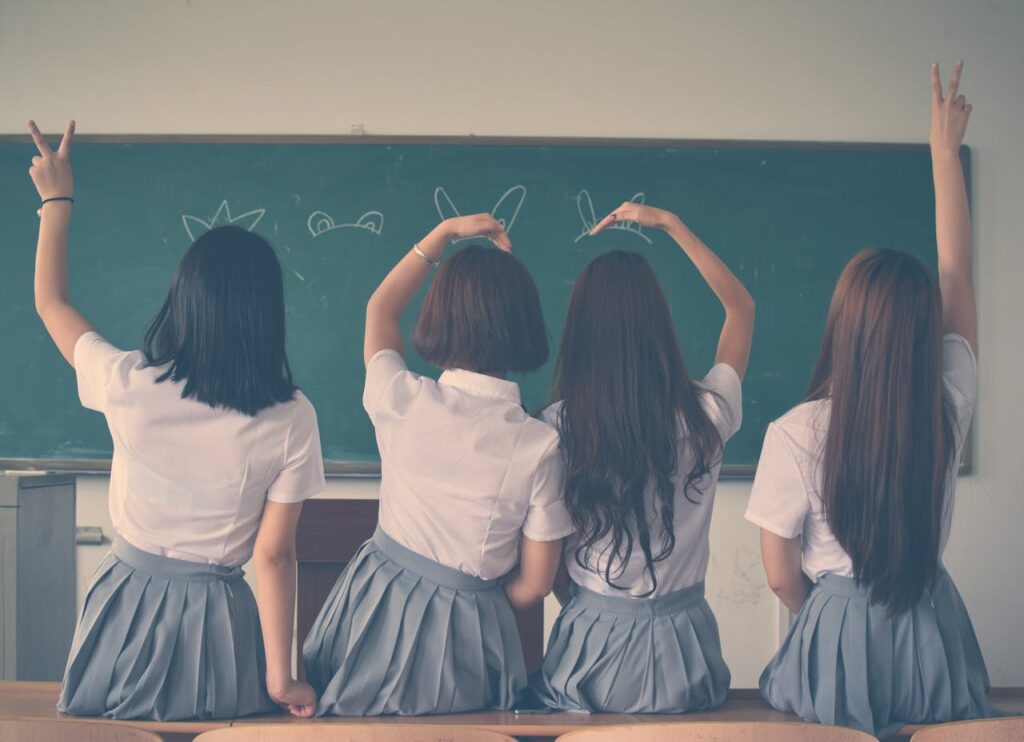As we journey through midlife, the pull of nostalgia can be both a comforting escape and a source of poignant memories. This duality is essential to acknowledge, for while reminiscing about the past can provide much-needed solace, it can also trigger painful reminders, especially during a midlife crisis. Striking a balance is crucial for navigating this phase of life.
For many of us, nostalgia harks back to our childhood days of carefree innocence. Yet, that is not so for all. Some have endured deep unhappiness, neglect, bullying, or even abuse. Nor is it good to spend too much time dwelling in the past. As the saying goes, “The past must be a springboard, not a sofa.” Luxuriating in rose-tinted memories for too long can disconnect us from the realities of the present. However challenging life may seem, it is important to remember that “this too shall pass.” Constantly looking back to the “good old days” may distract from present issues but will never solve them. For those shackled by an unhappy past, seeking professional help might be a wise step forward, especially when dealing with a midlife crisis.
You may like:
- Memory Mastery: How to Naturally Boost Your Memory as You Grow Older
- Healthy Aging Made Easy: A Guide to Add Vitamins and Supplements to Your Diet
- Riding the Hormonal Rollercoaster: How to Deal with Mood Swings During Menopause
Nevertheless, embracing moments of nostalgia can be rejuvenating. So, pack your bags for that school reunion, giggle like a ten-year-old, play a game of hopscotch if your knees allow, and confess your childhood crush on a yesteryear screen idol. Just remember to return to the present, refreshed and ready to live life fully.
Quick Summary
Nostalgia during midlife can be a comforting yet bittersweet experience. While reminiscing about the past provides solace and strengthens social bonds, it’s essential to balance it with present realities to avoid disconnection, especially during a midlife crisis. Nostalgia roots us in our cultural identity, improves mood, and offers insights into our lives, but overindulgence can hinder present-day coping. Embracing moments of nostalgia mindfully can rejuvenate and enhance our current well-being.
Whether you are dealing with a midlife crisis or not, continue reading this insightful and sensitive article on how to balance the pull of nostalgia with present realities.
An old black-and-white photograph, faded and sepia-tinted is posted on social media. Serious-faced schoolgirls in their crisply ironed uniforms, hair neatly braided, stand at attention for that once-a-year occasion—the class photograph. Or adolescent fashionistas of the seventies frolic in their polka-dots, frills, and 32-inch flares at a school picnic. It sets up a buzz of conversation, with everyone contributing their own memories. “Do you remember…..” “The chemistry class where we almost set fire to the lab….”, “The needlework class where .. spent the whole hour searching for a needle?”
It’s heartwarming. You can almost hear the giggles and feel that warm, fuzzy feeling inside you. For just a little while you are no longer a middle-aged woman in the throes of a midlife crisis caring for elderly parents, a critical patient, or anxiously watching your child negotiate an increasingly competitive world. You are a carefree child back in the vast playground of your school, in its cool, dark music hall, or its packed auditorium watching the curated movies deemed suitable by the school authorities! A million memories, which make you smile and wish for the ‘good old days’.
Welcome to the bittersweet world of nostalgia. A return to the past, a rush of emotions and memories—followed by wistfulness and the knowledge that the moments are gone forever. Never to return.

Nostalgia is an essential part of our human experience, a longing for a past. And it’s everywhere! It’s on the supermarket shelves, in the designer’s ‘retro fashion’ collection, in the music and movies of the black and white era, in the rustic homestays and refurbished palaces—all beckoning us to a past long gone. A past we perceive as appealing or desirable—a time when the pace of life was unhurried, the demands on us simpler, and midlife crisis an unheard-of entity.
As we enter midlife, we tend to turn increasingly to a happier past, most often to our childhood. Viewed from a distance of five decades, the heartbreaks, tears, and fears of our childhood are largely forgotten and we remember only the days of carefree innocence. A time when the new geometry theorem was our biggest bugbear, binomial theorems a bore, and algebra made us forever detest the alphabets ‘x’ and ‘y’ (due to no fault of their own)! Joyful memories of the long summer holidays spent with the Famous Five, train journeys to the hills, and visits to grandparents with unfettered access to pickle jars, and ghost stories narrated by the light of the hurricane lamp!
Some of the more pragmatic of you may dismiss it all as mushy sentimentality. But nostalgia is not just sentimentality. When it was first defined—back in the 17th century, it was a serious ailment. The word itself meant ‘an ache for home’ and it was a form of extreme melancholia. Alone in a far-off strange land, a person slowly sickened and pined away—for loss of home and all he held dear. There was often no remedy.
Fortunately, we know much more about nostalgia now. The tendency to revert to our past is a normal part of our human existence. It is the mind’s journey for ease, seeking to find comfort in times of anxiety and distress, as during a midlife crisis or during the lonely lockdown days of the recent pandemic. And nostalgia serves a purpose. More than one, actually!

- Nostalgia roots us to our past. The stories of our own childhood and that of our parents and grandparents give us a sense of personal and cultural identity and links us to our past. When we keep these stories alive through food, old photographs, music, traditions, and festivals, we give our children a sense of continuity and the security of belongingness. Talk then, to your children (and grandchildren), tell them about the stories you yourself heard as a child. You are a link in the chain that connects them to their roots.
- Nostalgia deepens our social bonds. Our memories are not ours alone, but shared by others who were (and are) a part of our lives. When we rekindle these shared memories and experiences, we strengthen these bonds of friendship and kinship. We feel understood, accepted, and connected, and are able to reach out to these friends in times of loneliness and grief. This can be especially comforting during a midlife crisis when social connections are crucial.
- Nostalgia improves mood. While this might be stating the obvious, there is nothing like a good, gossipy session of nostalgia to uplift our mood. So pick up that phone, dial your bestie, talk about the good (and the naughty) times, and banish the blues! On a more somber note, sharing memories of a loved one can diminish our grief and our sense of loss at their passing. Remembering the good times together comforts and soothes; and the negative emotions of sadness and loneliness recede. This is a valuable tool for emotional well-being, particularly during a midlife crisis.
- We gain insight about ourselves. When we reflect on our journey through life—about who we were, what shaped us, and what we are today, we gain new insight about ourselves. The journey may have been a difficult one. It may well be that we haven’t achieved all we set out to do or be the persons we wanted to be. But looking at our lives from a distance gives us a new perspective and comes with new lessons. We find both—acceptance for ourselves, and understanding and empathy for others. The knowledge that we have overcome tough times also gives us the strength and wisdom to cope in difficult midlife situations.

A word of caution, though. We need to be aware that the past may not come with pleasant memories for all. There are those who have been deeply unhappy, neglected, bullied, even abused. Quite recently, I was taken aback when a college friend requested us to stop calling him by his nickname, because it held painful reminders for him. It is wise, therefore, to be sensitive about the experiences and needs of others when we indulge in a bout of reminiscing.
Nor is it good for us to spend too much time in the past. As has been said lightly, “The past must be a springboard, not a sofa.” To luxuriate in the rose-tinted memories of the past is to disconnect ourselves from present reality. However difficult life is at present, remind yourself—this too shall pass. Constantly harking back to ‘the good old days’ can momentarily distract from the problems of the present, but can never be a solution. If you find yourself shackled down to an unhappy past and unable to move on with your life, it may be wise to seek professional help, particularly if you are experiencing a midlife crisis.
In the meantime, go ahead, pack your bags for that school reunion. Giggle like a ten-year-old, play a game of hopscotch (if your knees allow), own up to your infatuation with the yesteryear screen idol…and indulge in some midlife madness! Come back rejuvenated—to live life mindfully, healthily and happily in the present.
This content is copyright. Used on this website by permission from the author.
Author
Social
Other

Dr. Ipsita Misquitta
Dr. Ipsita Misquitta is a pathologist by profession. Post an early retirement, she and her psychiatrist husband run Pathfinder Clinic, a clinic for mental health and wellness, in Pune. She is an avid crafter, a voracious reader and dedicated writer. Dr. Ipsita coauthors the insightful blog ” Psychiatry and Society in Pune” where she blends medical expertise with everyday wisdom, making mental health accessible and relatable. Her personal blog, www.talesofipsa.com , offers a delightful peek into her world, filled with fascinating life stories and thoughtful reflections.
Links : Psychiatry and Society in Pune






